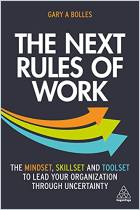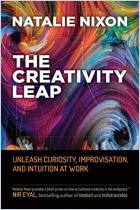
Book
The Gig Mindset Advantage
Why a Bold New Breed of Employee is Your Organization’s Secret Weapon in Volatile Times
Recommendation
The rate of change is accelerating, and organizations struggle to keep pace. Those with a business-as-usual attitude will fail to remain relevant, resilient or competitive. Organizational analyst Jane McConnell believes future business success lies hidden within the workforce. Pockets of creative thinkers – “gig mind-setters” – bring a freelancer attitude, evidenced by their ability to adapt, initiate and produce results.
Summary
About the Author
Author of L’avantage Internet pour l’entreprise, Jane McConnell is a researcher, analyst and strategic adviser for international organizations in health care, industry and retail.
Learners who read this summary also read
Book
Book
Book
Book

















Comment on this summary or Démarrer une discussion